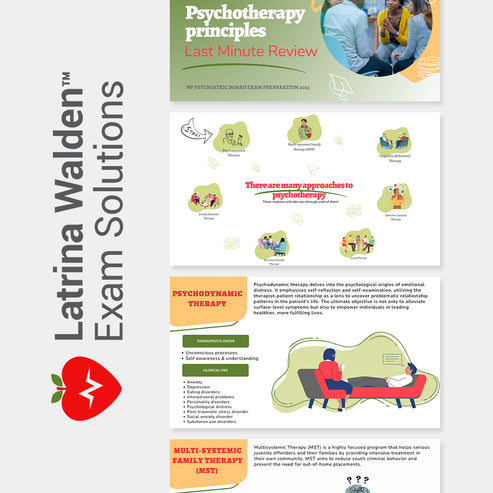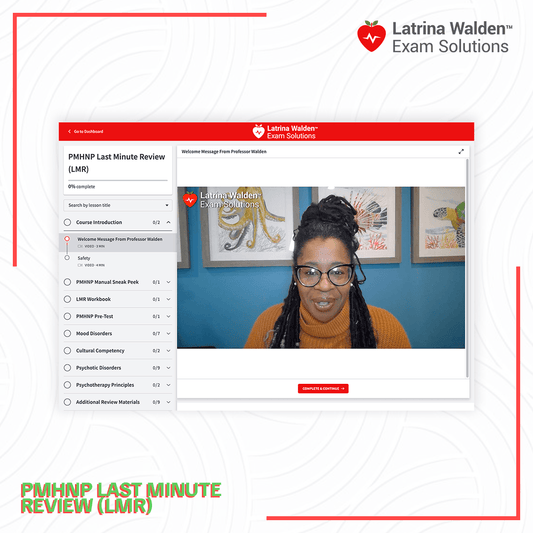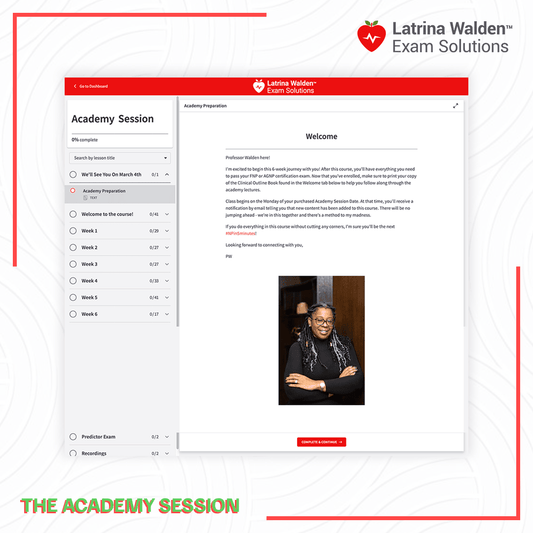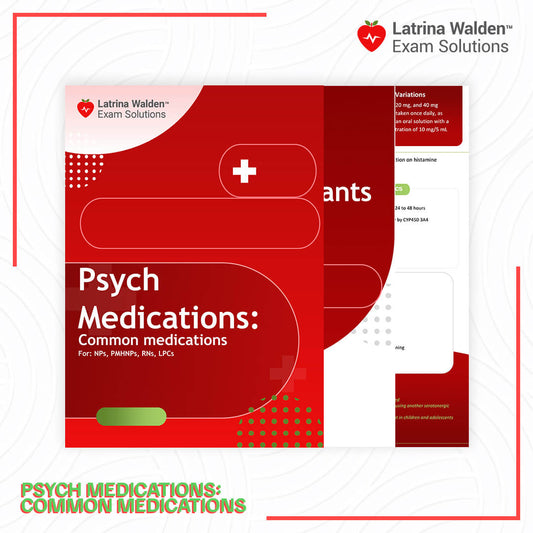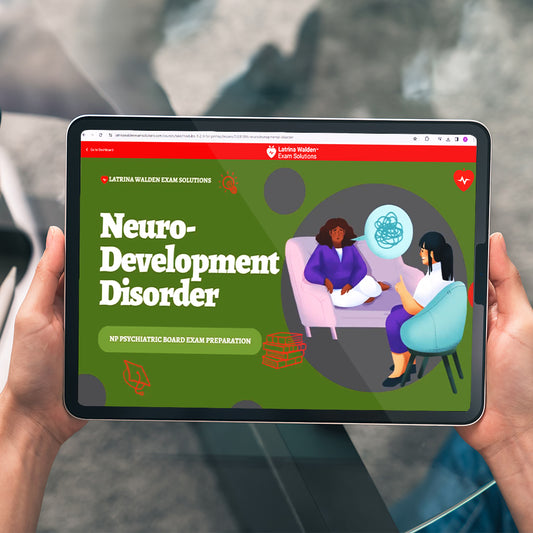Nurse practitioners can be found in nearly every corner of the healthcare world, and mental health is no exception. As our society becomes increasingly aware of mental health issues, the need for qualified professionals in this field continues to grow. Let’s take a look at the two available board certification exams for psychiatric-mental health nurse practitioners (PMHNPs).
Table of Contents
Why Should I Become a PMHNP?
Why Take The PMHNP Board Exam?
The ANCC PMHNP Board Exam
The *NEW* AANP PMHNP Board Exam
How to Prepare for The PMHNP Board Exam
Why Should I Become A PMHNP?
Did you know that 1 in 5 adults in the US experiences mental illness every year? What if we told you that of these tens of millions of Americans, only 47% received treatment in 2021? In 2022, the Kaiser Family Foundation reported that 47% of people in the United States were living in an area experiencing a mental health provider shortage. In some states, it was estimated that around 700 mental health providers would be required to adequately fulfill this need. Enter PMHNPs. NPs in general have become invaluable resources in filling niches of healthcare that have historically been occupied by physicians, and mental health is an excellent example of an area where NPs can make a significant difference.
Why Take the PMHNP Board Exam?
National certification by certifying bodies such as ANCC or AANP is necessary to maintain your licensure as a nurse practitioner and recognition by state Boards of Nursing (BONs). By taking and passing a PMHNP board exam, you can demonstrate your mastery of the skills and standards of a PMHNP.
The ANCC PMHNP Board Exam
Questions
The ANCC board exam is made up of 175 questions of various formats. These include drag-and-drop questions, extended multiple-choice, and “hot spot” or image-based questions. But don’t forget, only 150 of these are scored. The remaining 25 questions are considered “pretest” questions, and are questions ANCC is assessing for use on future exams. We repeat: these do not affect your score!

Content
The ANCC board exam covers a comprehensive range of material that reflects the practice of nurse practitioners. This material is organized into five key categories: scientific foundation, advanced practice skills, diagnosis and treatment, psychotherapy and related theories, and ethical and legal principles.
Scoring
After you take your exam, a raw score is generated; this is the total number of correct answers. That score is then converted into a scaled score, and in order to pass, you must get at least a 350. The process of converting raw scores into scaled scores adjusts for the difficulty of the exam. Since different versions of the ANCC exam may have slight variations in difficulty, scaling scores ensures that candidates are scored fairly. This means that candidates who take different versions of the exam should receive comparable scores, reflecting their true level of knowledge and skill.
The *NEW* AANP PMHNP Board Exam
Questions
There are a total of 135 scored multiple-choice questions (and 15 pretest questions) on the new AANP PMHNP certification exam, divided between two testing domains: practice (Domain I) and patient age (domain II). Read on for more details about these two categories!
Content
The two content domains on the AANP PMHNP exam are practice (I) and patient age (II). Domain I is further divided into content categories that you may recognize from the older AANP exams: assessment, diagnosis, planning, and evaluation. Let’s look at each of these a little more closely below.
Assess
Assessment questions test your ability to establish and evaluate your relationship with your patients, including your ability to identify barriers to learning and care. This evaluates your ability to perform developmentally appropriate psychiatric evaluations, mental status exams, and comprehensive risk assessments. You’ll need to demonstrate your ability to order and/or administer screening tools and diagnostic or laboratory tests.
Diagnose
Now you’ll need to demonstrate your skill at interpreting the results of assessments you may have ordered, establish diagnoses, develop differential diagnoses, and recognize urgent and emergent conditions in your patients.
Evaluate
Evaluation-type questions test your ability to assess your own plan of care based on outcomes. This includes monitoring for side effects and adherence to the plan of care, modifying your plan when needed, and engaging in quality improvement initiatives. You should be able to demonstrate practice in accordance with applicable ethical and legal requirements, as well as conformance to applicable scope and standards.
Scoring
To pass the AANP PMHNP exam, you must earn a scaled score of at least 500. Much like the ANCC exam, the AANP exam score is scaled. This means your initial score, or raw score, is converted to a standardized score that can be as low as 200 and as high as 800. This accounts for varying levels of difficulty among all versions of the exam.
How to Prepare for The PMHNP Exam
Regardless of which exam you choose to take, preparing for the PMHNP exam requires a strategic and comprehensive approach. Here are some tips to help you navigate the preparation process successfully.
-
Create a Study Plan
Develop a study plan that covers all content domains. Allocate specific time slots for each domain to ensure a balanced and thorough review.
-
Use Reliable Study Resources
Utilize reputable study materials, such as review books, practice exams, and online resources like LWES’s streamlined Last Minute PMHNP Review course! ANCC and AANP also provide valuable study materials.
-
Focus on Weak Areas
After taking practice exams, focus on the areas where you struggled. Review relevant content, seek clarification, and reinforce your understanding of challenging topics.

-
Utilize Clinical Experience
Draw upon your clinical experience to contextualize theoretical knowledge. Reflect on real-world scenarios to reinforce your understanding of mental health nursing concepts.
-
Take Care of Yourself!
Maintaining a healthy lifestyle is a key part of the exam prep phase. Getting adequate sleep, exercising, and managing stress will set you up for success not only on long study days, but on exam day too!
Remember, success on the PMHNP exam is not just about memorizing information, but also about understanding the application of knowledge in real-world scenarios. By adopting a well-rounded approach to preparation, you’re sure to succeed on the exam and in your future role as a PMHNP!
